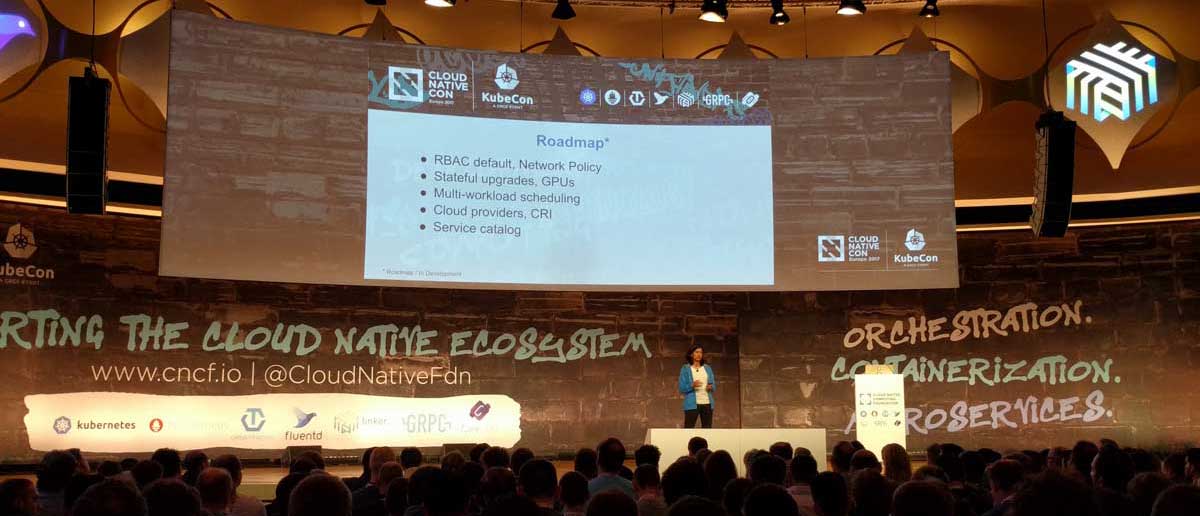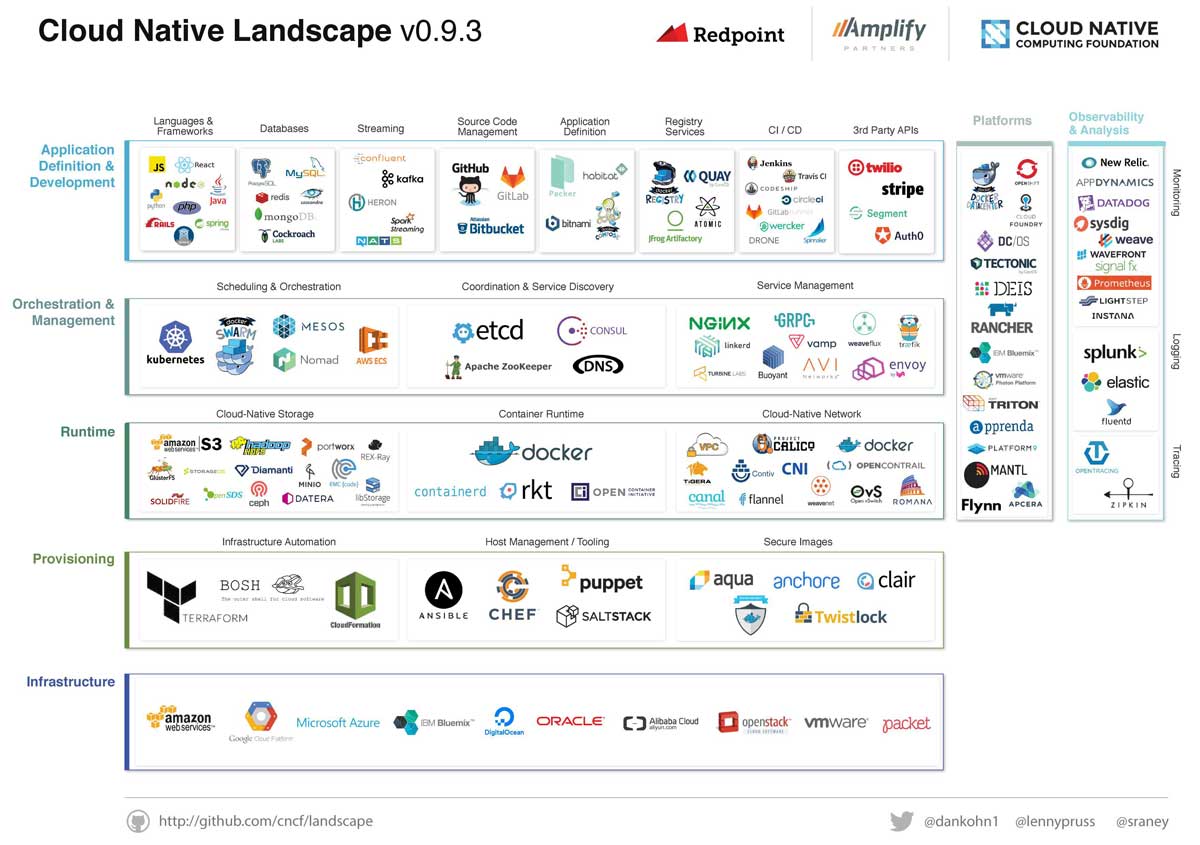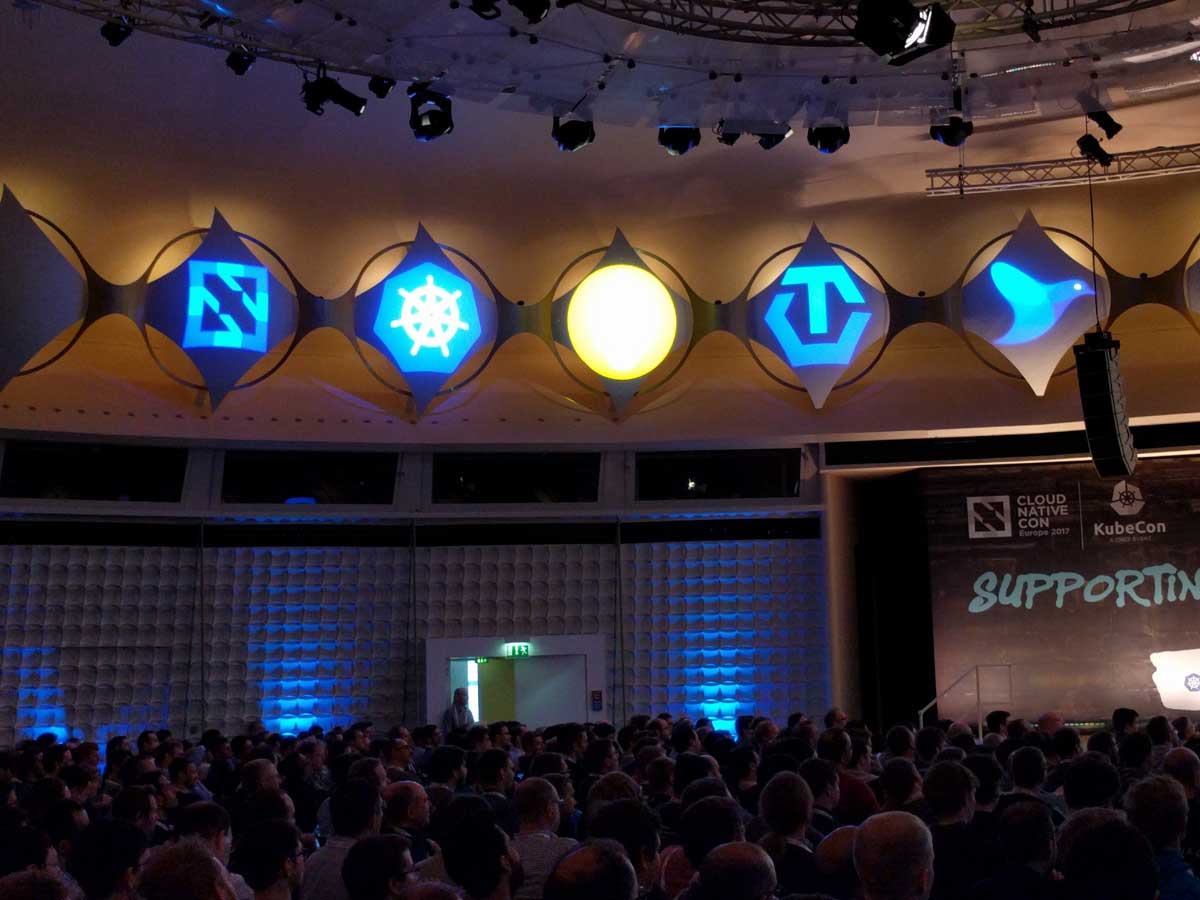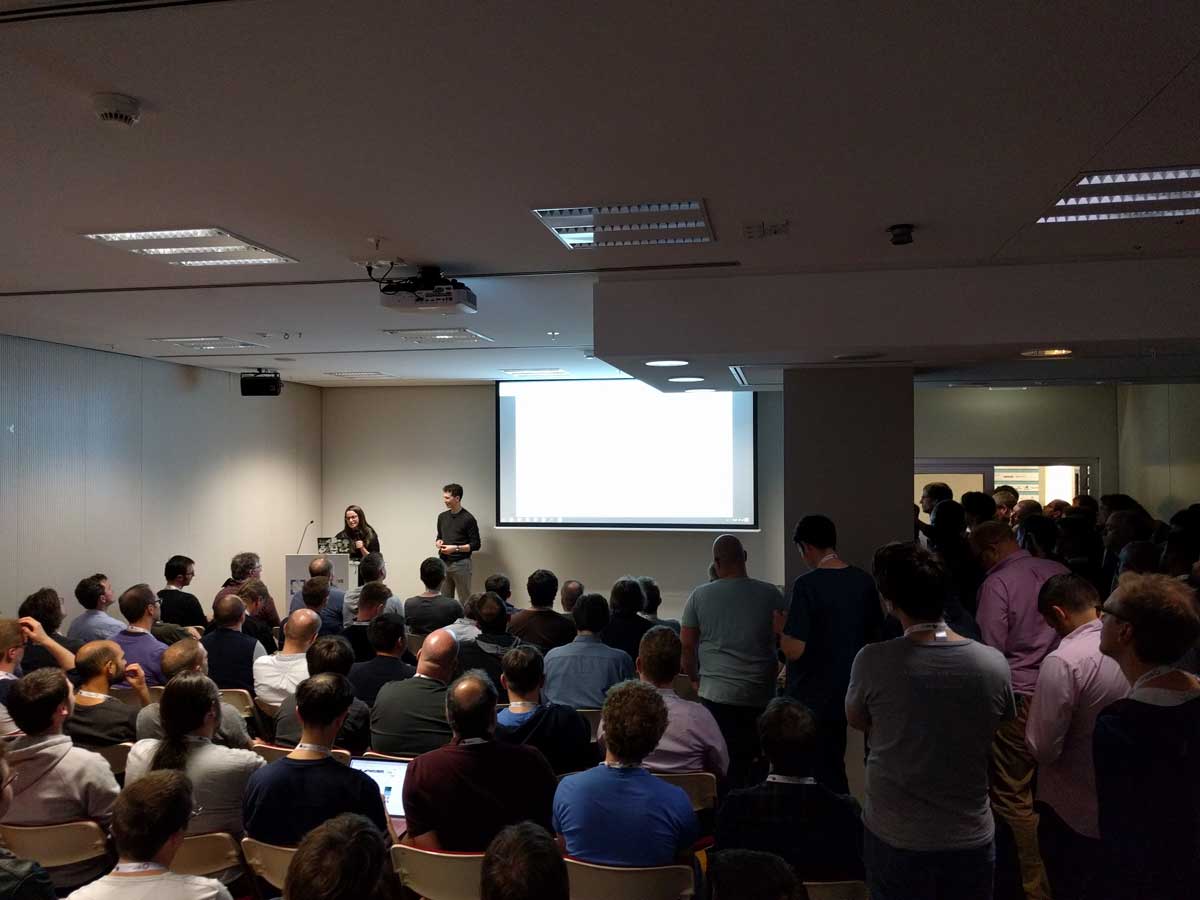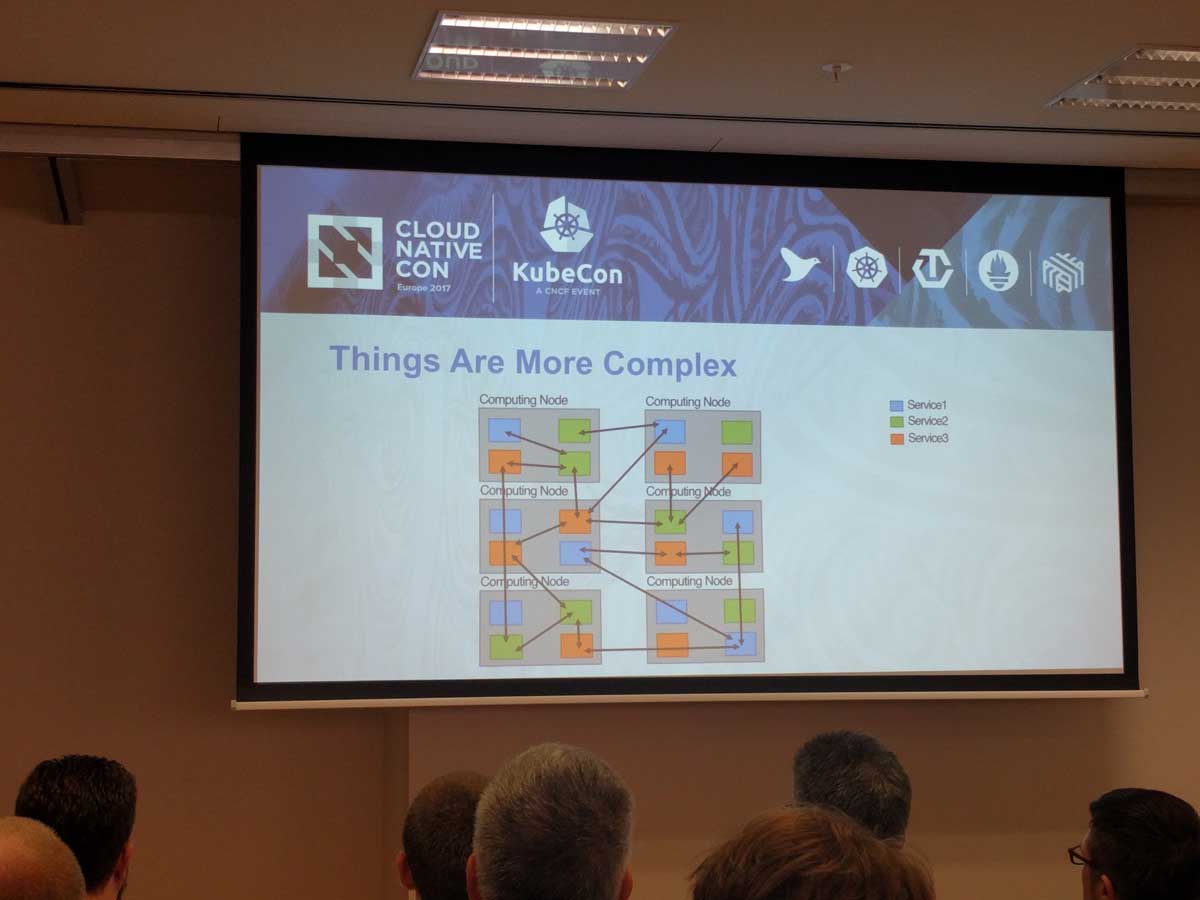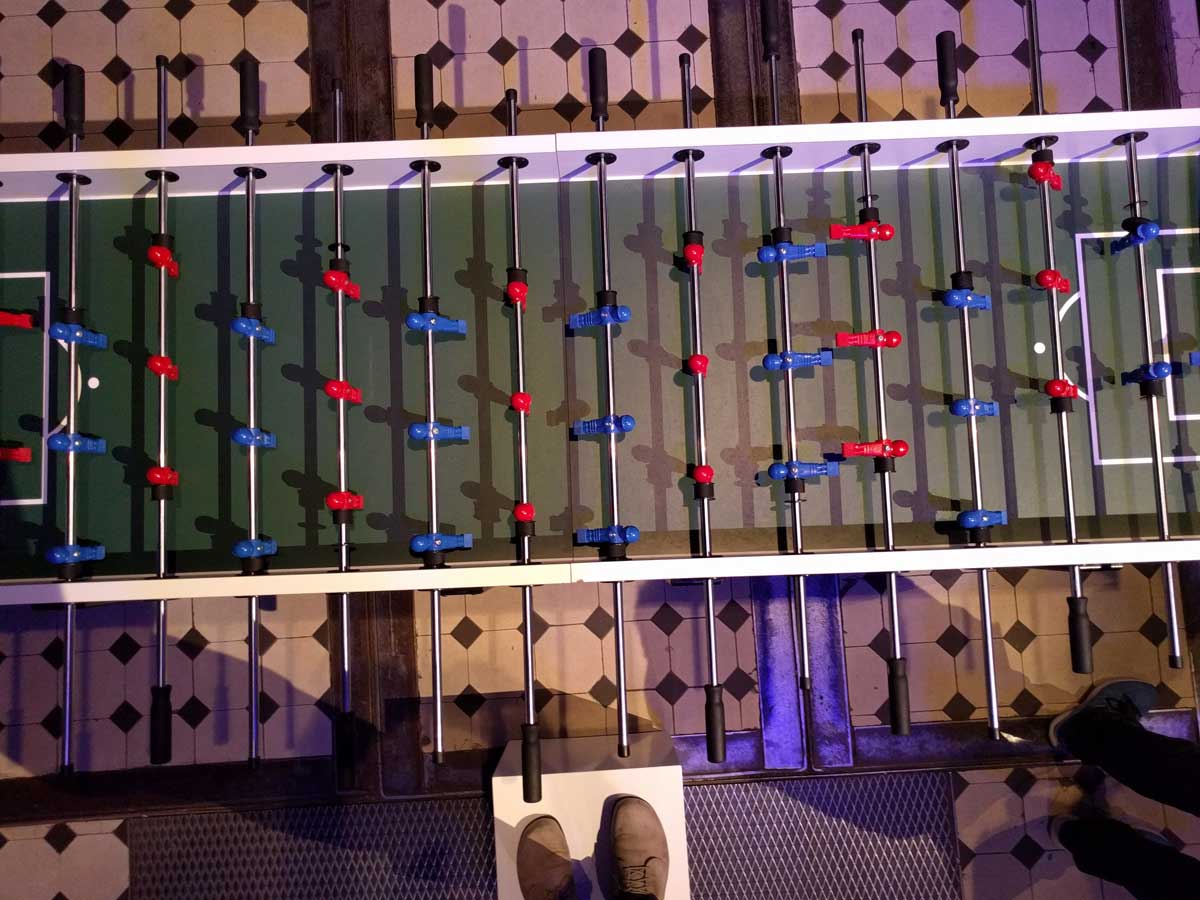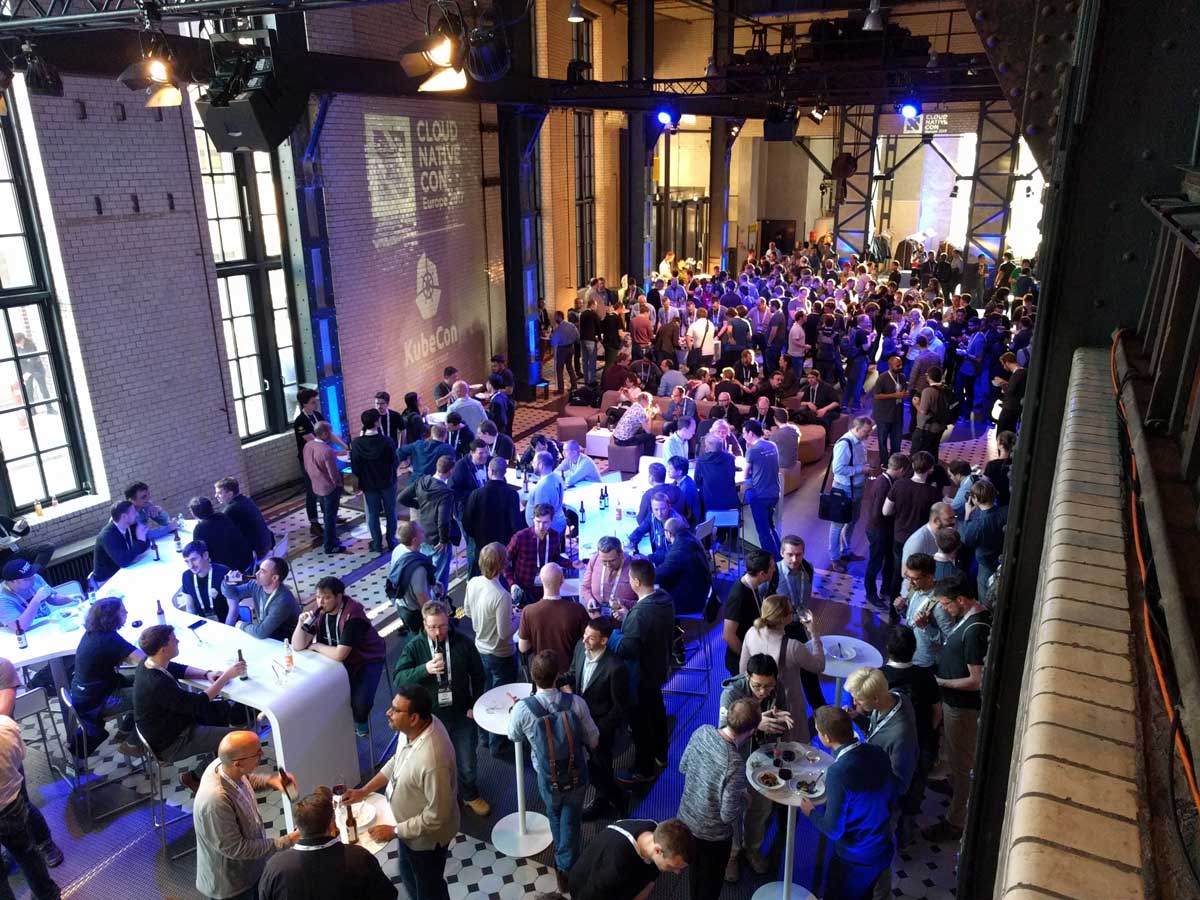KubeCon Europe 2017 Impressions
Last week I was visiting CloudNativeCon and KubeCon Europe 2017 in Berlin for two days of conference packed with talks. The conference took place in the good ol’ Berlin Congress Center, which brought up good memory on the earlier Chaos Computer Congresses, which used to take place there. This post is a quick recap of my notes and impressions.
Cloud Native Computing Foundation
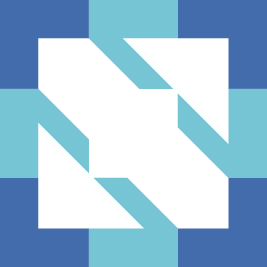 The conference was organized by the [Cloud Native Computing Foundation (CNCF)](https://www.cncf.io/), "a nonprofit organization committed to advancing the development of cloud native technology and services", and a daughter organization of the Linux Foundation. The primary mission of CNCF is to incubate and promote projects, and to support standardization of emerging technologies (eg. container).
The conference was organized by the [Cloud Native Computing Foundation (CNCF)](https://www.cncf.io/), "a nonprofit organization committed to advancing the development of cloud native technology and services", and a daughter organization of the Linux Foundation. The primary mission of CNCF is to incubate and promote projects, and to support standardization of emerging technologies (eg. container).The CNCF currently hosts 10 projects:
The following picture illustrates the current “Cloud Native Landscape”, a landscape of the currently most important projects regarding cloud-native applications and architectures:
Quote of the day
We replaced our monolith with micro services so that every outage could be more like a murder mystery.
@honest_update
Kubernetes (k8s)

kubernetes.io, github.com/kubernetes
Kubernetes is an open-source system for automating deployment, scaling, and management of containerized applications.
- It is one of the largest and most active open-source projects.
- Google uses vanilla Kubernetes, on top of it’s Borg system.
- RedHat is a major contributor, building it’s OpenShift platform on top of Kubernetes.
- Kubernetes Community
- More than 1,500 contributors, 22k GitHub stars.
- Project governance is distributed in special interest groups (SIGs), which meet weekly or bi-weekly with video conferences.
- Primary communication channel seems to be Slack, then mailing lists.
- Release and Security Management
- Release cycle is about 3 months.
- Each release has a dedicated release manager and is supported for 9 to 12 months.
- Upon security disclosures, a patch version will be released within 21 days.
- Extremely active development, lots of progress on all sides.
The Conference
- The event was completely sold out, with about 1500 attendees.
- It was very crowded in both the conference center in general, as well as in the rooms. For many interesting talks the rooms couldn’t hold enough people and were simply overflowing.
- There were always 8 tracks in parallel.
- Pickling talks was kind of a lottery. It was impossible to tell by just the description whether the talk would be just a high level product demo, or in-depth technical knowledge with lessions learned and best practices.
- Google, CoreOS, RedHat and Weaveworks were very present. Docker was hardly present.
- Food was very good and plenty. Always snacks, drinks, coffee and a proper lunch.
- After-party on the first day was rather boring, with fancy snacks but boring music, only sugared drinks (sugared beer and sugared cider), and uninspiring games such as connect 4.
- After-party on the second day was good, with the majority of conference attendees going, great food and good drinks, music, table soccer and a lot of space in a great location.
- Overall it was a good conference, and I would go there again!
Talks on YouTube
All conference talks are up on YouTube, check them out if you are interested!
